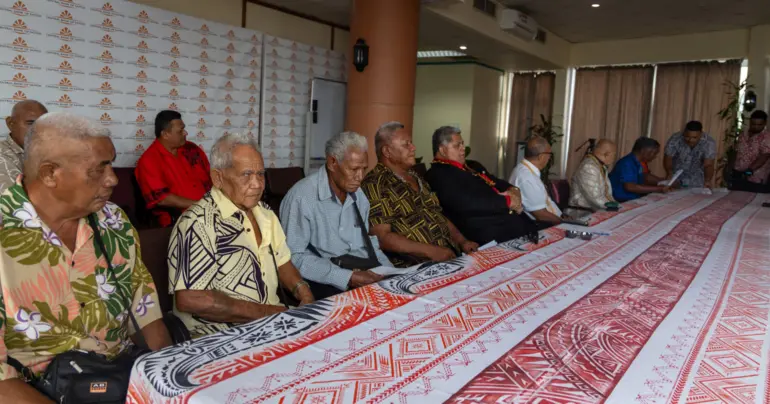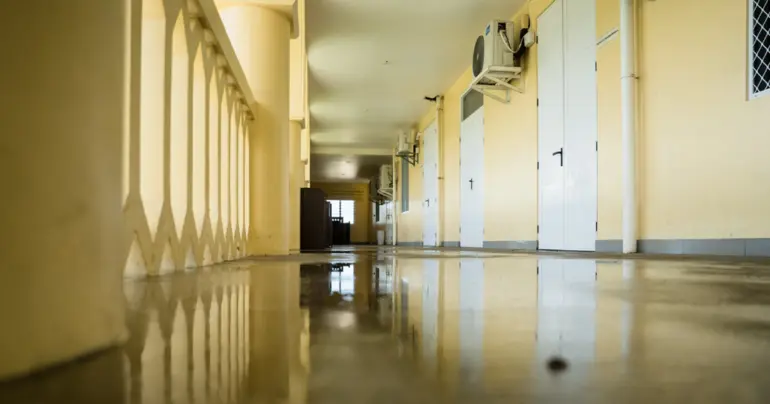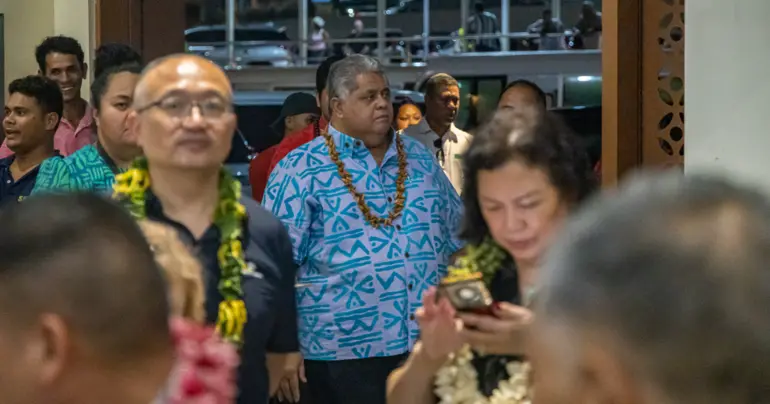What is COP28 and why is it important for Samoa?
Many Samoans would have seen pictures of Prime Minister Fiame Naomi Mataafa and Minister for Natural Resources and Environment Toeolesulusulu Cedric Schuster at the COP28 meetings in Dubai and while only a handful understand, many do not realise the significance of this meeting.
This is a meeting where the world leaders are discussing tackling climate change at a big UN summit in Dubai. It follows a year of extreme weather events in which many climate records have been broken.
We in the Pacific are living through climate change and slowly feeling the impact of it through rising sea level and unprecedented climate events such extreme heat and rain and this will have an impact how people are living, their food sources, their homes, the vegetation around us, the health of the people and a lot of other things.
This is the meeting where many nations are hoping that all talk in the previous meetings will be put to action.
Since the adoption of the Paris Agreement on climate change at COP21 in 2015, subsequent conferences have revolved around implementing its key goal: halt global average temperature rise to well below 2°C and pursue efforts to limit the rise to 1.5°C above pre-industrial levels.
If Paris gave the agreement, Katowice (COP24) and Glasgow (COP26) showed the plan. Sharm el-Sheikh (COP27) then shifted to implementation.
Now, COP28 is expected to be a turning point, where countries not only agree ‘what’ stronger climate actions will be taken, but show ‘how’ to deliver them.
Measuring the progress towards achieving the Paris goals on mitigation, adaptation and climate finance and adapting existing plans is a key part of the puzzle, and this is why COP28 assumes more significance.
The first global stock take, which began at COP26 in Glasgow, will conclude in Dubai, that is the hoped outcome.
For the Pacific including Samoa, they want all promises made at the past Conference of the Parties (COP) meetings to be put into action.
This is also the meeting that will decide on the pledges for climate finance in the form of grants. The money would benefit communities on the frontline of climate change in the Pacific.
There is also controversy as the hosts, UAE is one of the world's top 10 oil-producing nations. It has appointed the chief executive of the state-owned oil company, Sultan al-Jaber, president of the COP28 talks.
Oil - like gas and coal - is a fossil fuel. These are the main causes of climate change because they release planet-warming greenhouse gases like carbon dioxide when burned for energy.
Documents leaked to the BBC suggest the UAE planned to use its role as host to strike oil and gas deals. Jaber has previously argued that he is uniquely well-placed to push for action from the oil and gas industry, and that as chairman of renewable energy firm Masdar, he has also overseen the expansion of clean technologies like wind and solar power.
It is hoped COP28 will help keep alive the goal of limiting long-term global temperature rises to 1.5C. This was agreed by nearly 200 countries in Paris in 2015.
The 1.5C target is crucial to avoid the most damaging impacts of climate change, according to the UN's climate body, the Intergovernmental Panel on Climate Change (IPCC).
Long-term warming currently stands at about 1.1C or 1.2C compared with pre-industrial times - the period before humans started burning fossil fuels at scale.
However, recent estimates suggest the world is currently on track for about 2.4C to 2.7C of warming by 2100, although the exact numbers are uncertain.
As a result, the window for keeping the 1.5C limit in reach is "rapidly narrowing", the UN says.
There is likely to be disagreement about the future of "unabated" fossil fuels - coal, oil and gas which are burned without technologies to capture their emissions.
According to the BBC, Jaber has called for a "phase down" in their use, meaning a reduction over time, but not a complete end. However, the EU and other groups are expected to push for a full "phase out".
Climate campaigners point out that restricting agreements to "unabated" fossil fuels would allow some production to continue. They say there is no guarantee capturing emissions will work at scale.
There are already far more fossil fuels currently being produced or under construction than could be burned if the world is to limit warming to 1.5C, according to a recent report by the UN Environment Programme.
As COP28 got under way, it was announced that the "loss and damage" fund could start handing out money.
The fund was agreed at COP27. The idea is that richer countries will pay poorer countries already facing the effects of climate change - because richer countries have contributed most to global warming.
But the details of how it will work have remained deeply contested, with richer countries like the US reluctant to accept liability for past emissions.
COP28 is important and what is more important than that is what Samoa will accomplish if the Pacific nations get their demands recognised.











